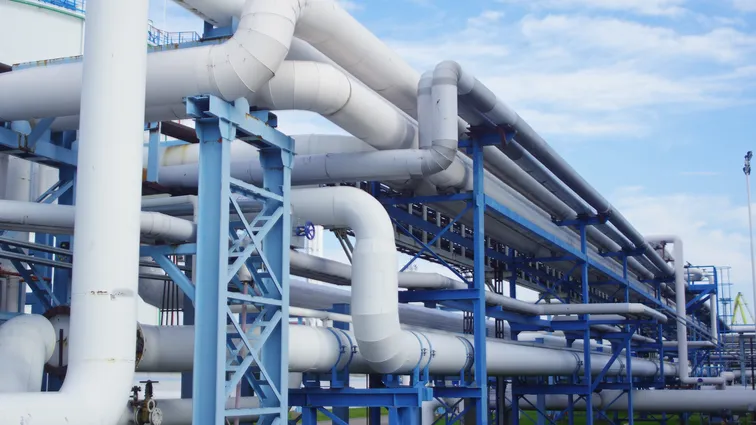The Lex Gas Amendment marks a pivotal step in modernising the Czech energy sector and addresses current challenges related to the decline in coal-based electricity generation. It strengthens the powers of the Energy Regulatory Office (ERÚ) and aims to enhance Czech energy independence. Signed by the President, the amendment became valid on 30 June 2025, and will become effective from 1 August 2025.
Key highlights of the amendment include the classification of gas power plants with a total output of over 100 MW and renewable energy plants with a total output of over 15 MW as “energy security projects”. The classification is expected to significantly expedite the permitting processes for these plants, which is driven by the urgent need to quickly replace the declining coal-based electricity generation, primarily due to rising emission allowance prices.
Administrative bodies will prioritise energy security projects over non-strategic projects. The amendment also shortens the deadlines for issuing specific permits and limits the possibility of appeals against administrative decisions. On the other hand, the validity of a single environmental opinion is extended from 5 to 7 years from its issuance.
Non-refundable connection fees
The amendment also counters speculative projects that block capacities in transmission and distribution systems with their connection requests. It introduces a measure that includes a non-refundable portion of the flat connection fee. The amount of the non-refundable deposit will be determined by a currently discussed ERÚ decree draft. The obligation to pay the non-refundable deposit will apply to all connection agreements concluded after the effective date, i.e., after 1 August 2025, and to agreements concluded before the effective date relating to not yet connected facilities.
Overcompensation checks
Original change presented by the amendment was the moderation of individual checks of profitability of photovoltaic power plants (PVPPs) commissioned between 2009 and 2010. The requirement originally applied only to plants with an installed capacity of over 30 kW. Subsequently, as part of the legislative process, the installed capacity was increased to over 145 kW. However, based on an amendment proposed by the Senate, this part was removed from the law and the checks will therefore not take place.
End of electricity wasters
The amendment also focuses on the efficient use of electricity and introduces a ban on electricity wasters. These are devices used for the supply of negative flexibility, converting electricity into heat. Unlike regular electric heating appliances, their goal is not the useful supply of heat but merely the “wasting” of generated electricity. The heat from such devices is not used efficiently but is released directly into the atmosphere. According to the new regulation, providers of ancillary services and flexibility providers must not use such devices unless the consumed electricity is further utilised efficiently. Violations of this ban can result in fines of up to CZK 5,000,000.
Capacity mechanisms
Lastly, the amendment expands the powers of the Energy Regulatory Office (ERÚ) within the framework of the so-called capacity mechanism.
In cases of urgent need and in the public interest, the ERÚ can mandate electricity producers to generate power beyond their licensed capacity (e.g., if there is a risk that an existing operator might shut down a coal power plant due to unprofitable operations). This measure can be applied if it is essential to ensure the safe and reliable operation of the grid and if there is a reasonable assumption that the safety and reliability of the system cannot be ensured by other means of the operator of the transmission system. The new legislation addresses the urgent needs of the society related to the anticipated decline in power generated by coal power plants due to their unprofitable operations.
The conditions for the operation of individual facilities will be determined by the transmission system operator ČEPS in collaboration with the ERÚ, who will submit the final capacity mechanism draft to the European Commission. Based on mathematical models and compensation calculations, the ERÚ and ČEPS will determine under what circumstances coal blocks can continue to operate.
We will be pleased to guide you through all the steps of construction of your gas or renewable energy source as an “energy security project” – from project draft through the entire building procedure, handling of licensing procedures before the ERÚ, and negotiation of the best conditions with grid operators. If disputes with distributors arise, we will ensure your connection is as quick and efficient as possible. Our goal is to ensure the smooth and timely implementation of the Lex Gas amendment with maximum benefits for you.








